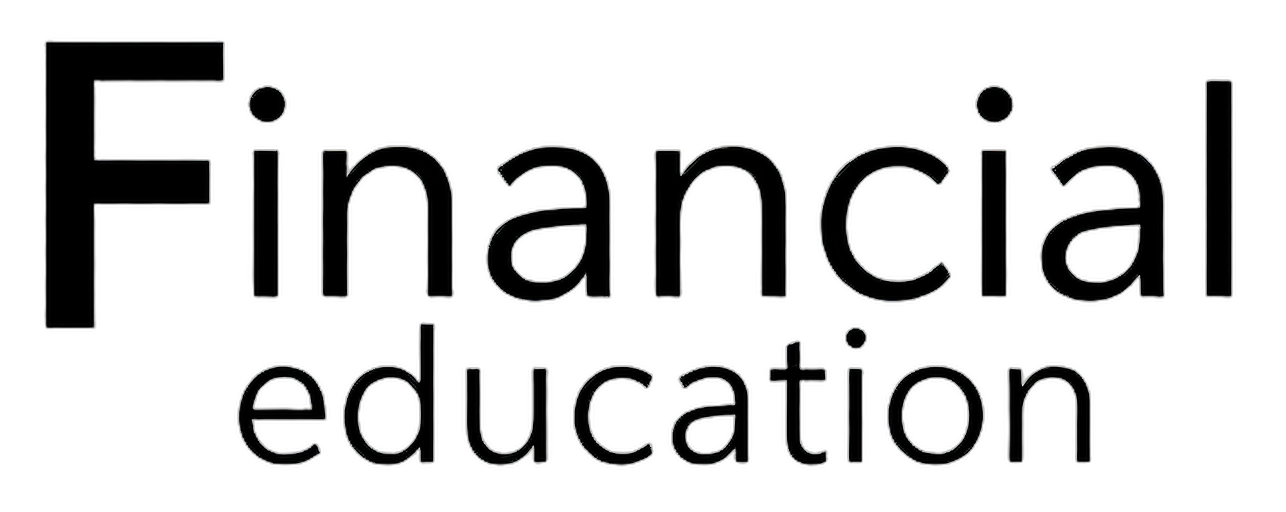Ever wondered why some people manage their money so well while others struggle? It often comes down to their financial literacy, or why is financial literacy important. This means knowing how to make smart money choices, which is key to reaching your goals. Warren Buffett and many studies agree that knowing these basics can greatly improve your life and financial health.

In today’s fast-changing world, why is financial literacy important? Being able to plan your budget, save, invest, and handle debt is essential. It helps you secure your financial future, whether you’re saving for retirement, buying a home, or just covering everyday costs without worry. Financial literacy is the key to achieving financial freedom.
- Financial literacy empowers you to make informed financial decisions.
- Skills in budgeting, saving, investing, and managing debt are crucial.
- Achieving life goals often depends on your financial knowledge.
- Notable figures like Warren Buffett advocate for financial education.
- Understanding financial principles can enhance economic stability.
What is Financial Literacy?
Understanding financial literacy is key to managing your money well. It includes skills like budgeting, investing, managing debt, and planning for the future. It helps you make smart choices and avoid financial pitfalls like fraud and too much debt. Knowing why financial literacy is important enhances your overall financial wellbeing.
Understanding Financial Basics
Mastering personal finance basics is crucial. Skills like balancing a checkbook, tracking spending, and saving are essential. These skills help you avoid financial mistakes and build a secure future.
Key Financial Concepts
Knowing key financial concepts is also important. This includes understanding interest rates, investing in the stock market, and diversifying your investments. These concepts help you make informed decisions for long-term financial health.
Here is a comparison of key financial concepts:
| Concept | Description | Importance |
| Budgeting | Creating a plan for spending and saving | Helps manage income and expenses |
| Investing | Allocating money with the expectation of future gains | Builds wealth over time |
| Debt Management | Strategically paying off and managing debts | Reduces financial strain and interest payments |
| Retirement Planning | Preparing financially for retirement years | Ensures a financially secure retirement |
Why Financial Literacy Matters in Today’s Society.
In today’s fast-changing financial world, knowing how to manage money is key. Financial literacy helps people make smart choices about spending, saving, and investing. But why is financial literacy important today?
With so many financial options out there, people without knowledge can get caught in bad deals. The financial literacy impact goes beyond helping individuals. It also helps the whole economy stay strong. A financially savvy population can prevent big economic problems caused by bad money choices.
People who understand finance can make better decisions, like choosing the right mortgage or planning for retirement. They also help the economy grow stronger. The question of why is financial literacy important is answered when we see how it helps society. It leads to a stronger middle class and less need for government help.
The effects of financial literacy are huge, for both personal success and the economy’s health. By focusing on financial education, we can build a more stable and empowered future for everyone.
Importance of Financial Education.
The financial education significance is huge. It’s the base for good financial literacy. It gives people the knowledge and tools to make smart choices.
Knowing the importance of financial literacy is key. It helps with saving, managing debt, and staying financially stable.
Financial education also lets you make choices that help your future. It makes you better at dealing with personal finance. You learn to manage credit, budget, and plan for the future.
Here are the main benefits of financial education:
| Benefit | Description |
| Improved Savings | People can save and keep their savings better. |
| Debt Management | It helps avoid too much debt and improve credit scores. |
| Economic Stability | It leads to long-term financial stability and well-being. |
| Informed Decisions | It empowers people to make smarter financial choices. |
| Future Planning | It aids in planning for retirement and future goals. |
In summary, the importance of financial literacy is tied to the financial education significance. It’s a crucial investment in your future. It gives you the confidence and skills for making good financial decisions.
Benefits of Financial Literacy.
Knowing the benefits of financial literacy can greatly improve your financial health. It gives you the skills to make smart money choices, steer clear of common traps, and get ready for the future.
Prevents Financial Mistakes
A big plus of financial literacy is stopping costly mistakes. By learning to manage your money, grasp interest rates, and steer clear of too much debt, you can dodge common errors. It teaches you to avoid credit card debt, bad loans, and hasty investments.
Prepares for Financial Emergencies
The perks of financial literacy shine when money troubles arise. People who know their stuff are ready for sudden expenses and job losses. They often have an emergency fund, know their insurance, and know when to ask for financial aid.
Helps Achieve Financial Goals
Financial literacy also helps reach your money goals. Whether it’s saving for a home, retirement, or education, knowing finance basics helps set and meet goals. It’s about budgeting, saving, and investing wisely to reach your dreams.
| Financial Aspects | Improvement with Financial Literacy |
| Spending Control | Reduced impulsive purchases |
| Debt Management | Better loan choices and repayment plans |
| Emergency Preparedness | Established emergency funds |
| Savings | Increased and consistent saving habits |
| Investment | Informed and strategic investments |
Why is Financial Literacy Important for Long-Term Success?
Financial literacy is key for lasting financial success. It helps you understand budgeting, saving, and investing. This knowledge lets you make smart choices for your financial health.
Knowing how to manage your money well helps avoid debt. It’s all about making informed decisions. This knowledge is vital for a secure and prosperous future.
Think about compound interest and smart investments. With the right knowledge, you can grow your wealth. Also, knowing about liabilities and assets helps create a balanced portfolio. This reduces risks and increases returns, securing your financial future.
Strategies to Improve Financial Literacy Skills.
Improving financial literacy means taking steps to manage money wisely. It’s about planning for financial security. Here are key ways to boost your financial knowledge and develop good money habits.
Create a Budget
Making a budget is key to financial planning. It helps you keep track of your money coming in and going out. With a budget, you can focus on what’s important and save for the future.
Pay Yourself First
This method means saving some money before spending on other things. Saving first helps you build a safety fund for emergencies or investments. It’s a smart way to improve your financial literacy.
Pay Bills Promptly
Pay your bills on time to keep your credit score high and avoid extra fees. On-time payments show you’re responsible with money. Make this a part of your financial plan to stay out of trouble.
Key Components of Financial Literacy.
Knowing the basic financial literacy components is key to smart money choices. These include budgeting, saving, investing, and managing debt. Learning these key financial concepts boosts your financial health and cuts down on credit use.
Budgeting lets you see where your money goes, helping you spend wisely. It helps set and track financial goals.
Saving is crucial for emergencies. It builds a financial safety net and prepares for the future.
Investing helps grow your wealth. Knowing about stocks, bonds, and mutual funds lets you make smart choices that fit your goals and risk level.
Managing debt is vital to avoid financial stress. It means understanding interest rates, making repayment plans, and avoiding high-interest loans.
Role of Financial Literacy in Reducing Stress.
Financial literacy is more than just numbers. It’s key to reducing stress by helping you manage your money well. Knowing how to budget, save, and invest gives you control over your financial future.
It teaches you to plan for emergencies and unexpected costs. A good plan reduces anxiety about money, making life easier and securing your economic well-being.
- Creating a budget that matches your financial goals.
- Setting aside money for emergencies.
- Understanding investments that fit your risk level.
- Managing debt to avoid high interest.
| Aspect | Impact on Stress | Economic Well-being |
| Budgeting | Reduces overspending, ensures financial control | Promotes saving and investing |
| Emergency Fund | Lowers anxiety about unexpected costs | Provides financial safety net |
| Investing | Boosts confidence in financial growth | Enhances wealth accumulation |
| Debt Management | Avoids stress from high interest | Improves credit score |
Impact of Financial Literacy on Economic Health.
Financial literacy does more than help individuals. It greatly impacts a society’s economic health. When people understand money, they make better choices about saving, investing, and spending. This leads to a stable economy and fewer economic crises.
Financial literacy helps reduce bad debt and makes households more resilient in tough times. It encourages people to avoid risky loans and maintain good credit. This leads to fewer defaults, making the financial system stronger and boosting the economy.
Also, an educated public is more likely to invest in things like retirement plans and stocks. These investments help the economy grow and promote long-term planning. This results in less income inequality and more economic mobility, making society more inclusive and prosperous.
FAQ
What is financial literacy?
Financial literacy means knowing how to handle money. It includes managing your finances, making a budget, and investing wisely.
Why is financial literacy important in today’s society?
It’s key today because it lets you make smart money choices. This helps you avoid money problems and reach financial goals.
What are the key benefits of financial literacy?
It helps you avoid money mistakes, get ready for emergencies, and reach your financial dreams.
How can financial literacy prevent financial mistakes?
Knowing basic money rules helps you make smarter choices. This way, you can avoid big money mistakes and handle financial issues better.
Why is preparing for financial emergencies essential?
Being money-smart means you can save for emergencies. This way, you’re ready for unexpected costs without stress.
How does financial literacy help you achieve your financial goals?
It lets you set and reach financial targets. You learn to plan and make choices that help you meet your goals.
Why is financial literacy important for long-term success?
It’s vital for long-term success because it teaches you to manage debt, invest smartly, and plan for the future.
What strategies can help enhance financial literacy skills?
Good strategies include making a budget, saving first, and paying bills on time. These keep your finances healthy.
What is the significance of creating a budget?
A budget helps you manage your money. It lets you control spending and focus on your financial goals.
What does ‘pay yourself first’ mean?
‘Pay yourself first’ means saving money before spending. It’s about setting aside a part of your income for savings.
Why is it important to pay bills promptly?
Paying bills on time avoids extra fees. It also keeps your credit score high and your finances organized.
What are the key components of financial literacy?
Key parts include budgeting, saving, investing, managing debt, and understanding credit.
How does financial literacy reduce stress?
It reduces stress by teaching you to manage your money well. This leads to financial security and peace of mind.
What is the impact of financial literacy on economic health?
It positively affects the economy by helping people make smart financial choices. This contributes to economic stability and growth.

